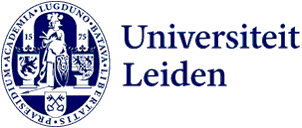Didactics - University Teaching Qualification
Testing and assessment (UTQ module)
Improve the quality of your tests by using (your own) test materials.
- Target group
- Lecturer
- Teacher
- Najat El Hani (Educational advisor/trainer)
- Method
-
Training course
'From our students’ point of view, assessment always defines the actual curriculum' (Ramsden, 1992). 'It defines what students regard as important, how they spend their time and how they come to see themselves as students and then as graduates... If you want to change student learning then change the methods of assessment' (Brown, G et al, 1997).
Knowing this, assessment can be seen in a different light. It does not only evaluate the results of student learning, it is the prime guide for student learning. Designing and delivering quality assessment that is aligned with the learning objectives is therefore very important. So, how can this be done? How can you evaluate the quality of your assessment? How do you choose the appropriate assessment formats? How do you construct clear and coherent assessment questions and assignments? How can you make sure these are marked fairly and reliably? How can you design your assessment in such a way that it supports student learning?
From assessment design to test analysis, from assessment formats to rubrics, from formative to summative assessment, all your questions will be answered in this course. During the course you will also work on improving the assessment from a course that you teach.
This training is aligned with the UTQ objectives and supports you in working towards your university teaching qualification. This course is specifically aimed at FGGA lecturers.
Programme set-up
This training consists of two half-day group sessions. The following topics will be covered, amongst others:
- Assessment for Learning
You will examine ways in which your assessment can have a positive impact on student learning and collect strategies to apply to your own courses. - Designing and structuring assessment
You will get tips to increase the reliability and transparency of your assessment and we will address the most common test question design errors. Using existing guidelines, you will be invited to rewrite your own assessment questions/assignment. - Assessing and giving feedback
A clear model answer is essential to combat rater bias. The format of your answer model depends on the format of your test. In this course you will be introduced to the various forms of rater bias, examine the model answer of your own assessment and construct a simple rubric.
Learning objectives
- Explain how assessment can be used as a tool for learning within your own course;
- Construct an assessment matrix to evaluate and ensure the validity of your assessment;
- Evaluate the choices for formative and summative assessment formats in relation to your learning objectives;
- Construct clear and coherent test questions;
- Describe how to construct transparent answer models and rubrics that can be used to assess in a reliable way;
- Explain the meaning of the most frequently used variables in psychometric test analysis.
Study load
5 hours assignments and 8 hours sessions.
Costs
For Leiden University/LUMC staff and teachers from Erasmus University Rotterdam and TU Delft the lower amount (€250) applies, for other participants it is the higher amount (€350).
